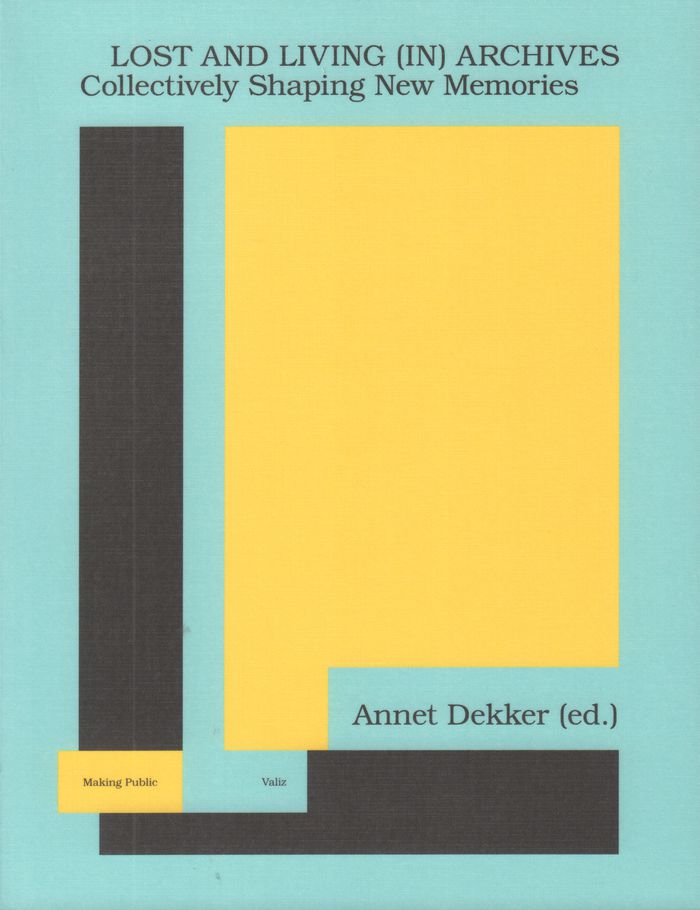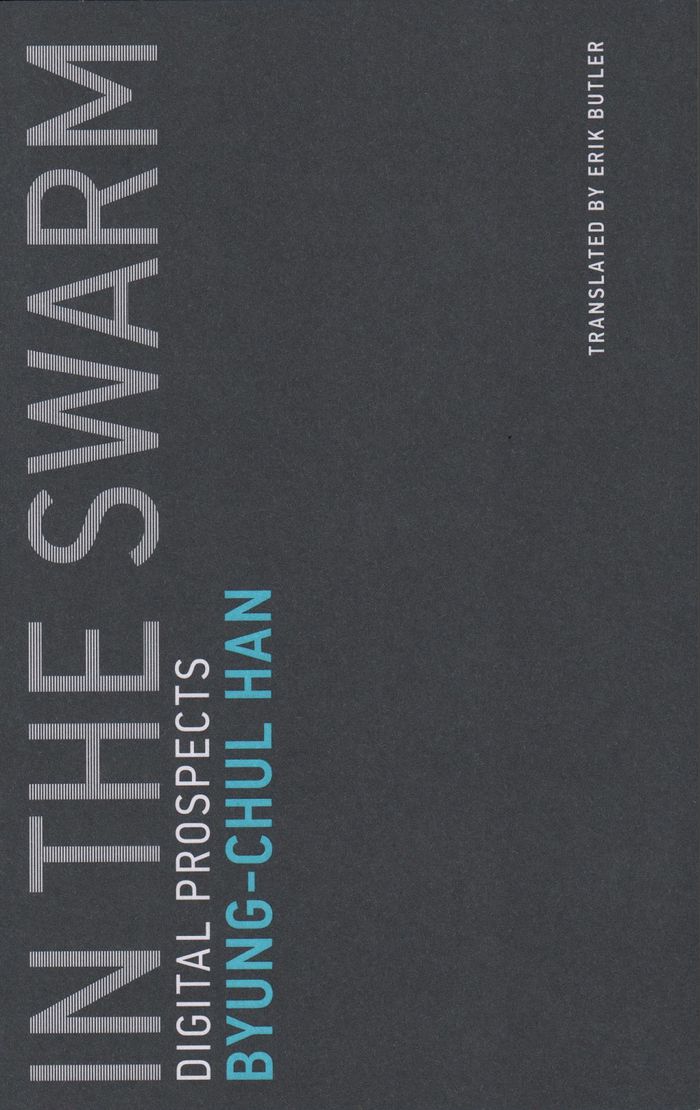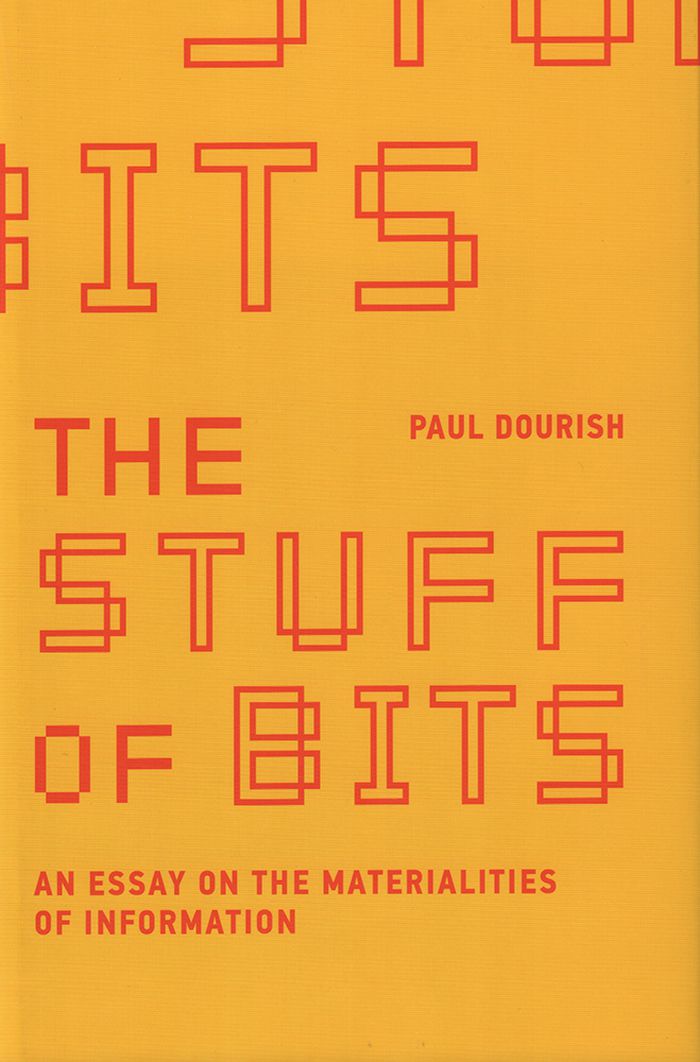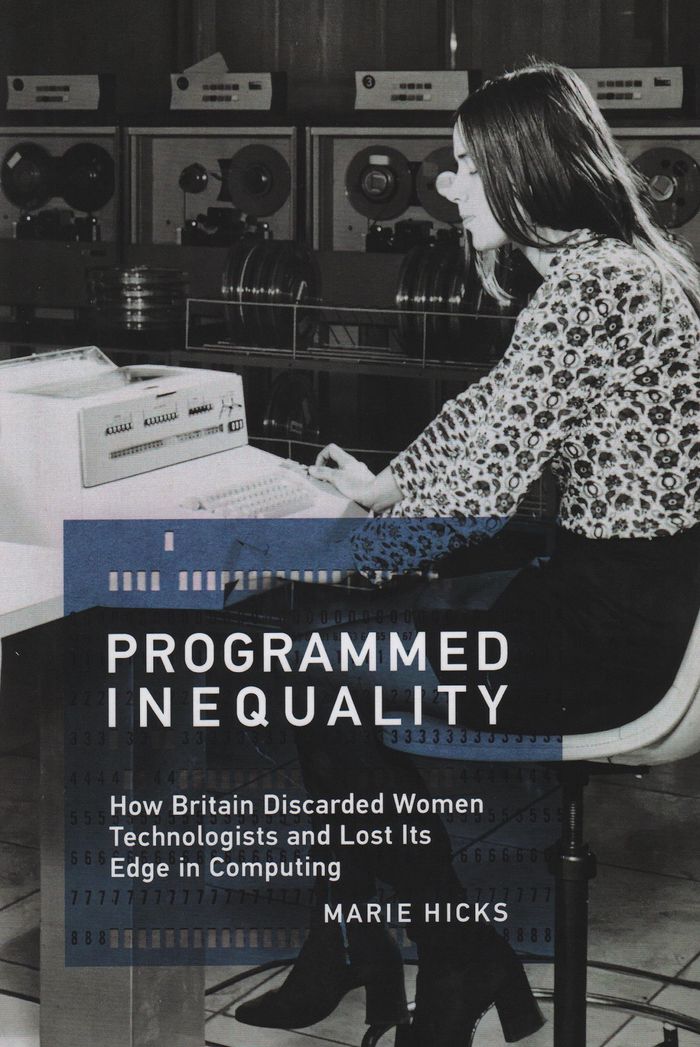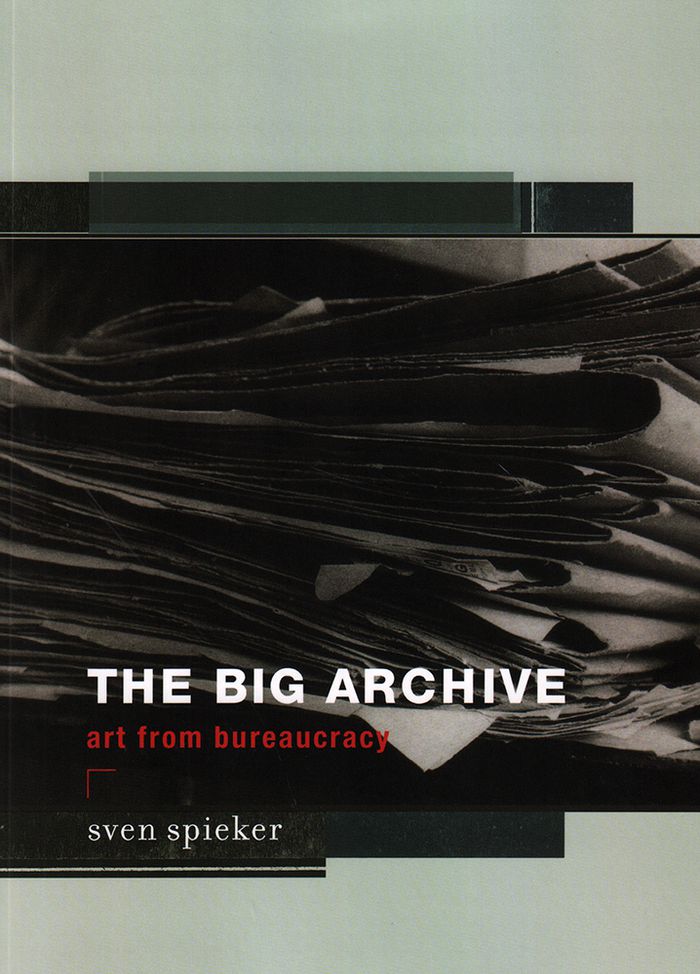$28.00
(disponible sur commande)
Résumé:
When we speak of clouds these days, it is as likely that we mean data clouds or network clouds as cumulus or stratus. In their sharing of the term, both kinds of clouds reveal an essential truth: that the natural world and the technological world are not so distinct. In The Marvelous Clouds, John Durham Peters argues that though we often think of media as environments,(...)
The marvelous clouds: toward a philosophy of elemental media
Actions:
Prix:
$28.00
(disponible sur commande)
Résumé:
When we speak of clouds these days, it is as likely that we mean data clouds or network clouds as cumulus or stratus. In their sharing of the term, both kinds of clouds reveal an essential truth: that the natural world and the technological world are not so distinct. In The Marvelous Clouds, John Durham Peters argues that though we often think of media as environments, the reverse is just as true—environments are media.
$16.95
(disponible sur commande)
Résumé:
Vous souffrez d'agoraphobie, de la crise de la quarantaine, d'une jambe cassée ou d'un chagrin d'amour ? Sachez qu’un livre peut avoir l'effet d'un prodigieux médicament, voire vous sauver ! Vous en doutez ? Essayez plutôt... Vous trouverez ici les meilleurs romans adaptés à votre cas. Garantis sans effets secondaires, ils vous permettront de traiter les pathologies(...)
novembre 2016
Remèdes littéraires : se soigner par les livres
Actions:
Prix:
$16.95
(disponible sur commande)
Résumé:
Vous souffrez d'agoraphobie, de la crise de la quarantaine, d'une jambe cassée ou d'un chagrin d'amour ? Sachez qu’un livre peut avoir l'effet d'un prodigieux médicament, voire vous sauver ! Vous en doutez ? Essayez plutôt... Vous trouverez ici les meilleurs romans adaptés à votre cas. Garantis sans effets secondaires, ils vous permettront de traiter les pathologies telles que : abandon, alcoolisme, calvitie, rage de dents, mal de dos, harcèlement, hémorroïdes, insomnie, jalousie, ménopause, obésité, rhume des foins, solitude… et bien d'autres !
Espaces de savoir
$25.00
(disponible en magasin)
Résumé:
Dans le paradigme de complexité qui est le nôtre, les contextes institutionnels dans lesquels s'exerce le savoir doivent dorénavant ouvrir sur un environnement général qui le réclame, dans l'idée d'un continuum devenu nécessaire entre les situations humaines et le savoir. C'est à cette problématique contemporaine que le présent ouvrage réfléchit. Il résulte de trois(...)
novembre 2016
Espaces de savoir
Actions:
Prix:
$25.00
(disponible en magasin)
Résumé:
Dans le paradigme de complexité qui est le nôtre, les contextes institutionnels dans lesquels s'exerce le savoir doivent dorénavant ouvrir sur un environnement général qui le réclame, dans l'idée d'un continuum devenu nécessaire entre les situations humaines et le savoir. C'est à cette problématique contemporaine que le présent ouvrage réfléchit. Il résulte de trois années de travail dans le cadre d'un projet réunissant cinq contributeurs de quatre universités québécoises ainsi qu'une artiste du milieu littéraire. L'équipe s'est intéressée à faire émerger et à développer des stratégies de spatialisation permettant d'accéder de manière inédite à des environnements de savoir ainsi qu'à générer et à organiser de manière singulière de tels environnements. Il s'agit ici d'ouvrir un champ de recherche artistique sur la question de la spatialisation du savoir, dans le cadre des mises en situation individuelles et créatives dont l'efficacité et la validité répondent ainsi à des impératifs très différents de ceux commandés par des critères de multitude et d'universalité.
$34.50
(disponible sur commande)
Résumé:
Archives are collections of records that are preserved for historical, cultural and evidentiary purposes. As such, archives are considered as sites of a past, places that contain traces of a collective memory of a nation, a people or a group. Digital archives have changed from stable entities into flexible systems, at times referred to with the term ‘Living Archives’. In(...)
Lost and living (in) archives collectively shaping new memories
Actions:
Prix:
$34.50
(disponible sur commande)
Résumé:
Archives are collections of records that are preserved for historical, cultural and evidentiary purposes. As such, archives are considered as sites of a past, places that contain traces of a collective memory of a nation, a people or a group. Digital archives have changed from stable entities into flexible systems, at times referred to with the term ‘Living Archives’. In which ways has this change affected our relationship to the past? Will the erased, forgotten and neglected be redeemed, and new memories be allowed? Will the fictional versus factual mode of archiving offer the democracy that the public domain implies, or is it another way for public instruments of power to operate? Lost and Living (in) Archives shows that archives are not simply a recording, a reflection, or an image of an event, but that THEY shape the event itself and thus influence the past, present and future.
In the swarm
$18.95
(disponible sur commande)
Résumé:
Digital communication and social media have taken over our lives. In this contrarian reflection on digitized life, Byung-Chul Han counters the cheerleaders for Twitter revolutions and Facebook activism by arguing that digital communication is in fact responsible for the disintegration of community and public space and is slowly eroding any possibility for real political(...)
In the swarm
Actions:
Prix:
$18.95
(disponible sur commande)
Résumé:
Digital communication and social media have taken over our lives. In this contrarian reflection on digitized life, Byung-Chul Han counters the cheerleaders for Twitter revolutions and Facebook activism by arguing that digital communication is in fact responsible for the disintegration of community and public space and is slowly eroding any possibility for real political action and meaningful political discourse. In the predigital, analog era, by the time an angry letter to the editor had been composed, mailed, and received, the immediate agitation had passed. Today, digital communication enables instantaneous, impulsive reaction, meant to express and stir up outrage on the spot. “The shitstorm,” writes Han, ”represents an authentic phenomenon of digital communication.” Meanwhile, the public, the senders and receivers of these communications have become a digital swarm—not a mass, or a crowd, or Negri and Hardt’s antiquated notion of a “multitude,” but a set of isolated individuals incapable of forming a “we,” incapable of calling dominant power relations into question, incapable of formulating a future because of an obsession with the present. The digital swarm is a fragmented entity that can focus on individual persons only in order to make them an object of scandal. Han, one of the most widely read philosophers in Europe today, describes a society in which information has overrun thought, in which the same algorithms are employed by Facebook, the stock market, and the intelligence services. Democracy is under threat because digital communication has made freedom and control indistinguishable. Big Brother has been succeeded by Big Data.
The stuff of bits
$46.95
(disponible sur commande)
Résumé:
In this publication, Paul Dourish examines the specific materialities that certain digital objects exhibit. He presents four case studies: emulation, the creation of a “virtual” computer inside another; digital spreadsheets and their role in organizational practice; relational databases and the issue of “the databaseable”; and the evolution of digital networking and the(...)
The stuff of bits
Actions:
Prix:
$46.95
(disponible sur commande)
Résumé:
In this publication, Paul Dourish examines the specific materialities that certain digital objects exhibit. He presents four case studies: emulation, the creation of a “virtual” computer inside another; digital spreadsheets and their role in organizational practice; relational databases and the issue of “the databaseable”; and the evolution of digital networking and the representational entailments of network protocols. These case studies demonstrate how a materialist account can offer an entry point to broader concerns - questions of power, policy, and polity in the realm of the digital.
Programmed inequality: how Britain discarded women technologists and lost its edge in computing
$51.95
(disponible sur commande)
Résumé:
In 1944, Britain led the world in electronic computing. By 1974, the British computer industry was all but extinct. What happened in the intervening thirty years holds lessons for all postindustrial superpowers. As Britain struggled to use technology to retain its global power, the nation’s inability to manage its technical labor force hobbled its transition into the(...)
Programmed inequality: how Britain discarded women technologists and lost its edge in computing
Actions:
Prix:
$51.95
(disponible sur commande)
Résumé:
In 1944, Britain led the world in electronic computing. By 1974, the British computer industry was all but extinct. What happened in the intervening thirty years holds lessons for all postindustrial superpowers. As Britain struggled to use technology to retain its global power, the nation’s inability to manage its technical labor force hobbled its transition into the information age. In "Programmed inequality", Marie Hicks explores the story of labor feminization and gendered technocracy that undercut British efforts to computerize. That failure sprang from the government’s systematic neglect of its largest trained technical workforce simply because they were women. Women were a hidden engine of growth in high technology from World War II to the 1960s. As computing experienced a gender flip, becoming male-identified in the 1960s and 1970s, labor problems grew into structural ones and gender discrimination caused the nation’s largest computer user—the civil service and sprawling public sector—to make decisions that were disastrous for the British computer industry and the nation as a whole.
The big archive
$35.50
(disponible sur commande)
Résumé:
The typewriter, the card index, and the filing cabinet: these are technologies and modalities of the archive. To the bureaucrat, archives contain little more than garbage, paperwork no longer needed; to the historian, on the other hand, the archive’s content stands as a quasi-objective correlative of the “living” past. Twentieth-century art made use of the archive in a(...)
The big archive
Actions:
Prix:
$35.50
(disponible sur commande)
Résumé:
The typewriter, the card index, and the filing cabinet: these are technologies and modalities of the archive. To the bureaucrat, archives contain little more than garbage, paperwork no longer needed; to the historian, on the other hand, the archive’s content stands as a quasi-objective correlative of the “living” past. Twentieth-century art made use of the archive in a variety of ways—from what Spieker calls Marcel Duchamp’s “anemic archive” of readymades and El Lissitzky’s Demonstration Rooms to the compilations of photographs made by such postwar artists as Susan Hiller and Gerhard Richter. In "The big archive", Sven Spieker investigates the archive—as both bureaucratic institution and index of evolving attitudes toward contingent time in science and art—and finds it to be a crucible of twentieth-century modernism.
Architectures de mémoire
$45.00
(disponible sur commande)
Résumé:
La situation de transition que nous connaissons et qui fait cohabiter une culture du livre avec une culture de l'écran nous fait peu à peu basculer d'une raison graphique à une raison computationnelle. De la même manière que l'écriture a permis d'engendrer un mode particulier de pensée, où les listes, les tableaux et les formules ont joué un rôle primordial dans la(...)
Architectures de mémoire
Actions:
Prix:
$45.00
(disponible sur commande)
Résumé:
La situation de transition que nous connaissons et qui fait cohabiter une culture du livre avec une culture de l'écran nous fait peu à peu basculer d'une raison graphique à une raison computationnelle. De la même manière que l'écriture a permis d'engendrer un mode particulier de pensée, où les listes, les tableaux et les formules ont joué un rôle primordial dans la modélisation des connaissances, avec le numérique s'inventent d'autres systèmes de mise en forme de l'information et de sa transmission. En effet, le développement du réseau, d'un vaste cyberespace, induit une rationalité particulière reposant sur le calcul plutôt que sur l'écriture, ce qui est la seule façon de le rendre intelligible. On comprend dès lors que les architectures de mémoire, dans leur actualisation contemporaine, essentiellement numérique, sont au coeur d'une transformation de l'esprit humain. Il est encore trop tôt pour déterminer exactement ce qu'il en est de cette transformation, mais il importe dès maintenant de tracer les contours de cette situation et d'explorer des pistes qui peuvent en baliser certains des aspects les plus saillants.
$19.95
(disponible sur commande)
Résumé:
Depuis plusieurs années, il ne se passe guère de mois sans qu’un étudiant ou une étudiante ne vienne à la Fabrique pour nous poser des questions sur l’édition indépendante, « engagée » comme ils disent. Ils sont en fin de licence ou en maîtrise, souvent dans la filière « métiers du livre » ou bien en science politique ou en histoire. Le projet de ce livre, c’est d’elles(...)
Pour aboutir à un livre : la fabrique d’une maison d’édition
Actions:
Prix:
$19.95
(disponible sur commande)
Résumé:
Depuis plusieurs années, il ne se passe guère de mois sans qu’un étudiant ou une étudiante ne vienne à la Fabrique pour nous poser des questions sur l’édition indépendante, « engagée » comme ils disent. Ils sont en fin de licence ou en maîtrise, souvent dans la filière « métiers du livre » ou bien en science politique ou en histoire. Le projet de ce livre, c’est d’elles et eux qu’il vient, de leur intérêt, leur questionnement et leurs doutes.– Comment fonder une maison d’édition à partir de rien – combien d’argent faut-il, dans quel local, avec quel imprimeur, quel banquier, quel distributeur ?– Ensuite, comment s’y prendre pour ébaucher un catalogue, pour le développer, quelle relation avec quels auteurs, quel travail sur les textes ?– Sans négliger les questions matérielles : établir le budget des livres, tenir un plan de trésorerie, un budget annuel… L’éditeur doit marcher sur ses deux jambes, mener de front la partie intellectuelle et la partie matérielle du métier, qui se complètent et se renforcent mutuellement.– Les livres une fois imprimés, il faut les faire connaître – à la fois aux médias, aux libraires, dont le soutien est décisif, et pour finir aux lecteurs, en utilisant les moyens les plus traditionnels (contact direct et par les représentants) et les autres (site internet, newsletters, etc.). Et puis il faut les vendre ! Ce livre est mené sous forme d’un dialogue avec Ernest Moret, étudiant en philosophie qui connaît bien la Fabrique où il a été stagiaire. Cette forme a permis de mêler des notions d’ordre général et des idées et des anecdotes tirées de l’expérience personnelle d’Eric Hazan, dans l’édition d’art puis à la Fabrique. Sans compter les suggestions et critiques issues de l’équipe même de la Fabrique – car ce qui ressort clairement de ce livre, c’est que l’édition est avant tout un travail collectif.



